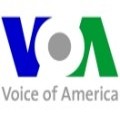France's U.N. ambassador, Jean Marc de la Sabliere, says he is losing confidence in the Security Council's ability to quickly adopt a resolution to end the fighting between Israel and Hezbollah in Lebanon. Diplomats had expected Council members to settle differences in time to adopt a resolution calling for a truce within days.
At issue is the sequence of events leading to a cease-fire. The United States wants international troops sent into the buffer zone before a cease-fire. But the French, supported by the European Union, say that a cease-fire must come first.
Wednesday, U.S. Ambassador John Bolton said differences among Council members were narrowing. But Thursday, Ambassador de la Sabliere indicated that defining a cessation of hostilities remains a problem.
Diplomats say Israel is willing to accept a truce, but reserves the right to respond to any aggression, even after international troops are on the ground. The French, who are expected to lead the international force, say a truce should rule out defensive actions.
"The international force will deploy in a buffer zone where only the Lebanese army and the international force will be allowed," de la Sabliere said. "I think we have on this sequence an agreement, but we still have to discuss, as John Bolton has said yesterday, the qualification of the cessation of hostilities. For the Europeans, we think it is very clear: we think it should be a cessation of hostilities and then the nature and status of the agreement of the parties of all these elements for a sustainable solution." De la Sabliere and Bolton are meeting in direct talks to try to resolve the stalemate.

